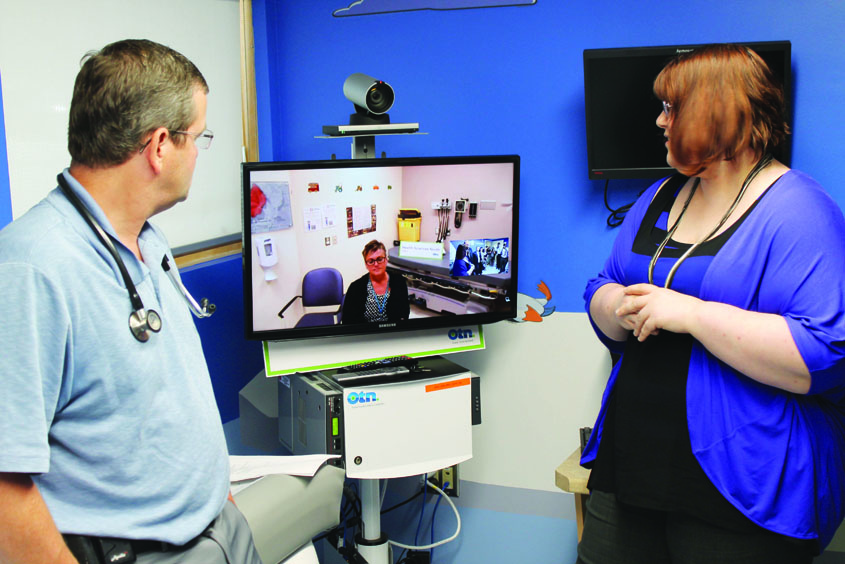Patients
Wearable devices are rapidly transforming the way healthcare is delivered to patients. Body patches have been developed for continuous monitoring of heart rates and body temperature, among other parameters. Sensors are being created to read biomarkers for gauging the levels of stress in a person and synchronising them with blood pressure and pulse rate to determine the state of anxiety. Based on the results, the patient is given personalised insights into his/her specific stressors and the right relaxation techniques are suggested. This is how technology is driving a shift from treatment towards prevention. A key benefit of wearable technology and integrated IT systems is that it is making possible for care to be given to patients, wherever they are. Such remote monitoring reduces patients’ visits to clinics and their overall medical expenses. This is a boon to those suffering from chronic illnesses.
Clinicians
Medical technology has equipped doctors with tools for a more accurate diagnosis and delivery of healthcare. Innovations like Augmented Reality (AR) have the potential to bring in a paradigm shift in the existing healthcare practices. AR healthcare apps can give surgeons precise, real-time, 3D views of the surgery site, vastly improving accuracy and surgical outcomes. AR can also be used in medical education to enable learners get a much-better understanding of the human anatomy.
A chief factor changing healthcare is the industry’s rapid digitisation. Doctors are increasingly going online to source information that will help them deliver the best treatment and care possible. A recent survey by Docplexus, India’s largest and fastest growing community of doctors, revealed that 83% of the physicians preferred online medical learning as it removes demographic barriers and is more convenient. Online networking platforms like Docplexus are empowering doctors like never before by making available a great deal of information on medical advances, medico-legal issues, healthcare policies and best practice standards. They also act as a channel for doctors to engage with peers and seniors and collaborate towards better medical outcomes. Online CMEs and KOL interactions keep clinicians updated on the latest developments in life sciences.
Data science and machine learning equip pharma companies to improve their drug development process. They improve the outcomes of clinical trials and enable accurate predictive analyses leading to the creation of the most effective drugs.
Pharmaceutical Companies
Data science and machine learning equip pharma companies to improve their drug development process. They improve the outcomes of clinical trials and enable accurate predictive analyses leading to the creation of the most effective drugs.
AR can be used to provide drug information to doctors and patients in an innovative way. Patients are in no position to decipher complex drug descriptions and find themselves distanced from knowing how exactly the pills they take work inside their bodies. Doctors too, and not skilled to interpret complex statistical data of clinical trials that is presented to them in textual format. Their extremely busy schedules make things more challenging.
Pharma can use digital technology to convey drug information to their targeted audience through a mix of audio, video and text. This can be done by establishing more digital touchpoints with the target segment. A digital connect equips pharma with crucial data that can be analyzed to understand their market’s needs and develop the right kind of drugs. It lends them unique insights into their customers’ behaviors and preferences. They can personalize their offerings and measure the impact of their strategies. Docplexus offers its pharma clients great value through its expertise in digital marketing comprising the right content strategy, the latest software architecture and a structured analytics and feedback loop.
To conclude, technology is reshaping the medical sector like never before. It is poised to craft a new era characterized by faster, better and more efficient healthcare, dramatically improving global patient outcomes in the near future.
The writer is CEO at Docplexus

